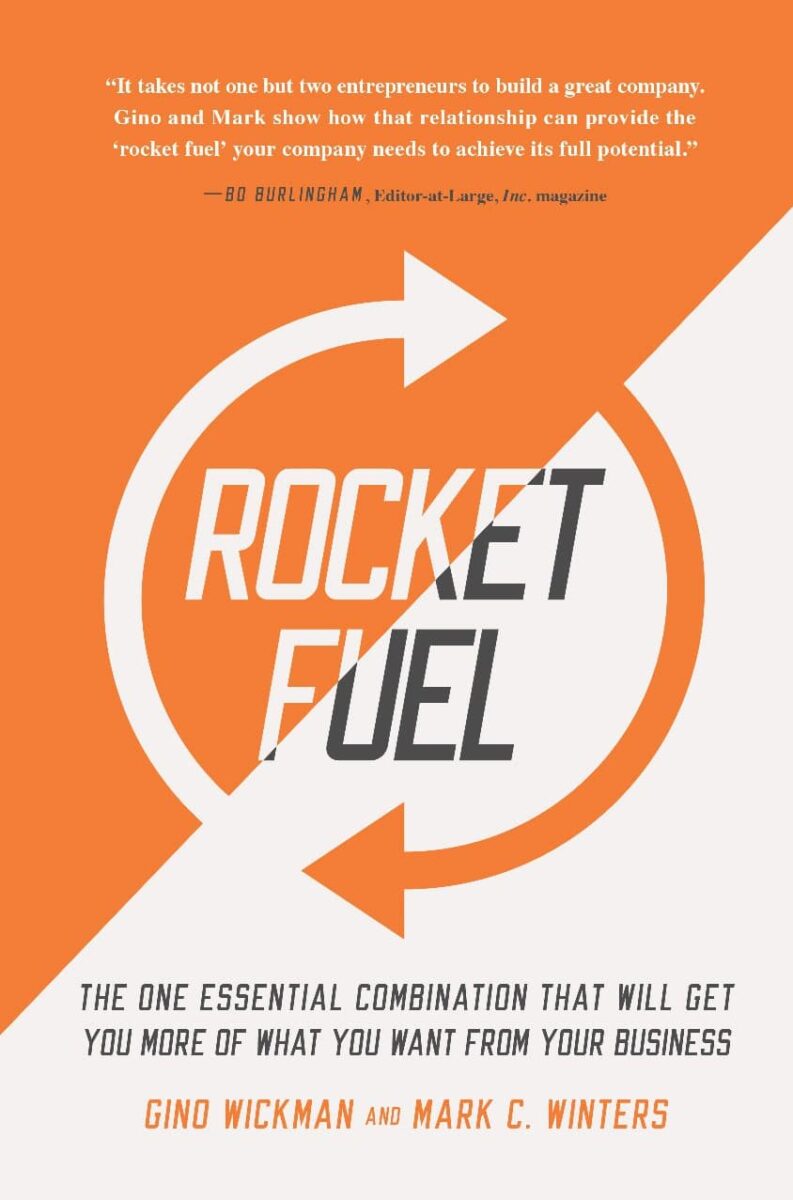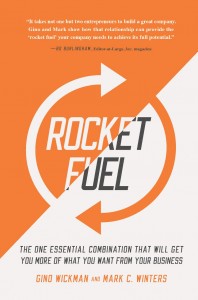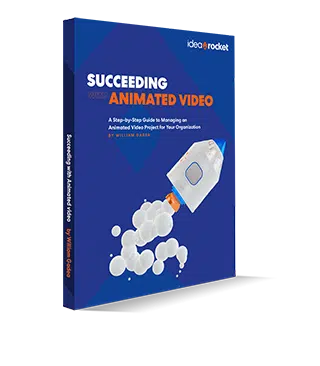When we think about matchmaking, we tend to think about romantic relationships. But as most of us have learned, business relationships can often be just as intimate, rewarding and difficult to navigate. So, when starting or running a business, it’s important to ask ourselves questions like the following: What qualities make for a successful partnership? How should responsibilities be divided? And, given the infinite number of variables and personality types, is there any sort of replicable dynamic that can help businesses grow?
If questions like these are frequently on your mind, then you might enjoy reading an interesting new business book called Rocket Fuel. Written by Gino Wickman and Mark C. Winters (and published by BenBella Books), the book’s message is based on a discovery that Wickman made over 20 years ago when running a family business, when he realized that there are two distinct types of leaders in all small businesses: the “Visionary” (who sees the future) and the “Integrator” (who makes that future happen). “These two roles could not be more different from each other,” Wickman and Winter write. “That is why it is magic when they work well together.”
As such, Rocket Fuel chronicles the importance of the Visionary and the Integrator, ultimately exploring the roles of each individual and how a symbiotic relationship between the two can help a business thrive. To make their case, Wickman and Winters draw on personal/anecdotal experiences, various business principles and famous historical pairings. And in less than 200 pages, they make a compelling case for unlocking the power of a successful Visionary/Integrator relationship.
To understand the basis of their perspective, and shine light on some of the kernels from their book, let’s take a closer look at Rocket Fuel.
To better understand Rocket Fuel, it’s probably wise to first better understand EOS®. Created by Rocket Fuel co-author Gino Wickman, EOS (short for “The Entrepreneurial Operating System”) is a system of tools, concepts and philosophies that’s aimed at helping entrepreneurs maximizing their chances for success. In particular, EOS aims to help leadership teams excel at three things:
- Vision: Getting everyone in an organization on the same page.
- Traction®: Instilling focus, discipline, and accountability throughout the company.
- Health: Helping leaders become more cohesive and functional.
Wickman’s EOS method can be implemented in a variety of ways and with varying degrees of information/support. Choices include:
- Downloading an assortment free tools.
- Utilizing the EOS Worldwide App (also free).
- Hiring a certified EOS Implementer to speak/present at an event.
- Purchasing an online training course called Base Camp.
- Reading one of the EOS-inspired books (In addition to Rocket Fuel, there are three other books: Traction, Get a Grip and Decide!)
In this context, it’s best not to look at Rocket Fuel (or, frankly, any business book) as the be-all and end-all. Instead, Rocket Fuel is a piece of a larger puzzle that aims to bring some art, science and inspiration to entrepreneurship. And the book certainly delivers in that regard.
Rocket Fuel opens with an introduction (aptly introducing the book as a How-To Manual for understanding and managing the relationship between a “Visionary” and an “Integrator”) and then is broken down into two nearly equal sections (Part One: The Context and Part Two: The How-To’s).
In the spirit of that context that the first half of this book is all about, I wanted to share a compelling fact cited by the authors. According to John F. Dini’s Hunting in a Farmer’s World: Celebrating the Mind of an Entrepreneur, 3% of the population (Visionaries) create 66% of the new jobs in our economy. After reading that stat, it’s easy to understand why Wickman and Winter decided to write this book. And, if you’re like me, it led you to ask: what, exactly, does a Visionary bring to his or her organization?
Rocket Fuel is careful, smartly so, to note that no two visionaries (nor two integrators, for that matter) are created equally. Therefore descriptions of these roles are not written in stone. But, generally speaking, here are some of the attributes typical of a Visionary:
- Idea Generation (which is why they are often the company founders)
- Inspiration
- Strategic Thinking (with a penchant for seeing the Big Picture and solving big problems)
- Cultivation of Corporate Vision
With these great qualities, however, tend to come a host of challenges. Such as staying focused, sweating the details, developing talent and “organizational whiplash.” To help mitigate these weaknesses and strengthen those assets above, a Visionary can benefit tremendously by partnering with the right Integrator.
Famous examples of this Visionary/Integrator relationship include Ray Kroc and Fred Turner (at McDonalds), Henry Ford and James Couzens (Ford) and Walt Disney and Roy Disney. Knowing as we do that all relationships are inherently different, what then are the attributes typical of an Integrator? Wickman and Winters’ list includes the following:
- Running the Day-to-Day
- Managing Projects
- Providing a Steady Force
- Serving as the Voice of Reason
In general, the Integrator acts as the “glue” that holds an organization together. But, at the same time, due to the nature of his or her job, the Integrator tends to be an unsung hero. Not only is there little glory, but the Integrator tends to be perceived as a “pessimist” internally and often has to play the role of disciplinarian.
All of which is why much of Rocket Fuel is focused on the interplay between Integrator and Visionary, and how the two roles–when operating in harmony–can catapult an organization further. If achieving that kind of harmony is important to you, or if you believe that further exploring the Visionary/Integrator dynamic might benefit your organization, then you’ll likely enjoy reading Rocket Fuel.





